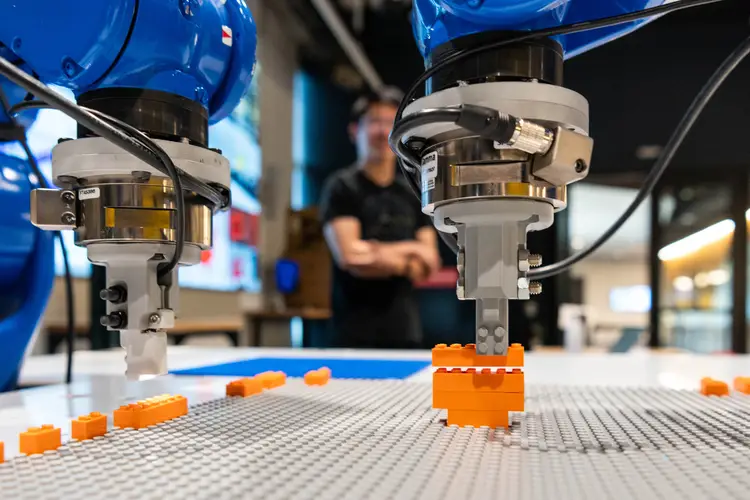
Two CMU Apps Address Digital Health Gaps
Media Inquiries
Carnegie Mellon University researchers and students are using readily available technology to address critical gaps in how patients and doctors track, share and use health data. The tools they are developing could someday be widely used to give patients real-time insights into symptoms such as depression and fatigue, and help remote areas manage medical records without internet access.
An app to better understand mental health in people living with multiple sclerosis
Researchers from CMU’s School of Computer Science(opens in new window) have developed an app that monitors depression and fatigue in people with multiple sclerosis (MS) by using artificial intelligence and everyday devices like smartphones and Fitbits.
The study(opens in new window), led by associate professor Mayank Goel(opens in new window) and Ph.D. student Prerna Chikersal showed how digital tools can give patients meaningful insights into their own health while supplying clinicians with data to provide better treatment. It also gave patients direct access to their health information.
The app, currently a prototype, tracked physical activity, heart rate, sleep and social engagement by combining wearable data with smartphone signals such as GPS, Bluetooth and communication patterns. It also collected patients’ self-reported mood and fatigue levels through daily prompts.
By layering this information, the research team was able to detect high rates of depression (about 35%-40%) and fatigue (about 50%-55%) in their MS study population, particularly during the pandemic when isolation and stress dramatically affected mental health.
Beyond MS, Goel’s team has expanded their research to include breast cancer survivors, LGBTQIA+ teens and high school girls, developing adaptive machine-learning models that can accommodate different definitions of “normal” across diverse populations.
Read more(opens in new window).
Documenting patient care without reliable internet
Students from CMU’s Heinz College of Information Systems and Public Policy(opens in new window) have developed a low-cost electronic medical records (EMR) system to help a rural Haitian health clinic better track patient care.
Partnering with FLM Haiti(opens in new window), a Pittsburgh-based nonprofit that provides education, literacy training and other services to people in Haiti, the team created an app paired with a small, low-cost computer called a Raspberry Pi. The device that acts as a local server, enabling staff to record and access medical data even without reliable internet or electricity.
The system offers a centralized, uniform way to store records and identify community health trends. FLM Haiti leaders called the project “transformational,” noting its potential to reshape care delivery in resource-limited settings much like EMRs transformed U.S. health care.
“Working in a resource-constrained environment, the students delivered a cost-effective solution. They incorporated thoughtful user interface design and multilingual support, which greatly enhanced usability,” said Michael McCarthy(opens in new window), a professor who advised the student team.
In November, the students will discuss their work at the American Medical Informatics Association’s Annual Symposium, held in Atlanta. In the future, the tool could serve other poorly resourced clinics abroad and in rural parts of the U.S., where internet connectivity can be limited.
Read more(opens in new window)
Together these projects demonstrate how CMU researchers are tackling health inequities from Pittsburgh to Port-au-Prince.
Work That Matters
Researchers at CMU are working on real world solutions to the biggest challenges.
Read more about the latest discoveries.(opens in new window)




